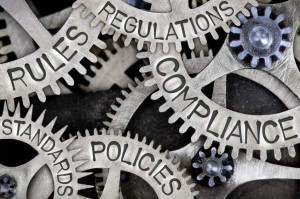 What types of tenant rules should you create? This is something every property owner needs to think about. You need to know what the local, state, and federal laws are, so you don’t violate any when drafting your lease.
What types of tenant rules should you create? This is something every property owner needs to think about. You need to know what the local, state, and federal laws are, so you don’t violate any when drafting your lease.
Once you determine what regulations need to be put in place, include them in the lease. Unsure where to begin? No problem! Below, we’ve listed a few suggestions based on common rules included in most residential leases.
1. Occupancy
You need to consider how many tenants will be allowed to live on the property. Many property owners have occupancy limits in their lease. This can prevent a tenant from subletting the property without approval. It can also stop tenants from moving more people into the property.
To determine the correct occupancy for your unit, it’s important to consider how many bedrooms and bathrooms there are. You should also take a close look at the laws are regarding occupancy limits.
2. Noise
If you have multiple rental units in close vicinity to each other or neighbors, it’s important to address noise. Noise is a common complaint when you have people living close together. You may want to set a time for when quiet hours go into effect. Your locale may even have its own rules about noise violations. When drafting the rules for quiet hours, highlight where the rules apply. For example, you want to mention activities that aren’t allowed during these times, like mowing the lawn, playing instruments, or having a loud party. Define exactly what you mean in the clause so there’s no guessing.
3. Pets
You need to consider whether you will or won’t allow pets. If you don’t want pets living on the property, it should be defined in the lease. Keep in mind that you need to respect the laws regarding assistance animals or it could get you into trouble.
If your rental units allow pets, then you need to determine what your restrictions will be. Will you only allow a certain number of pets? Will you have a rule regarding how large the pet is allowed to be? Is there a restriction on what type of pets your residents can have? How about rules regarding the disposal of pet waste? You need to consider all of the rules that will pertain to pets and include them in the lease. Again, remember to consult the Fair Housing Act in regards to assistance animals so that you don’t violate any laws.
4. Parking
There’s a limited amount of parking space at your rental, so you need to consider how many spots each tenant is allowed to use. If you have restrictions about where visitors are allowed to park, consider placing that information in the lease as well. If there are areas you don’t want tenants or visitors parking, make sure to post visible, easy-to-read signs.
5. Business
Nowadays many people are working from home. As a property owner, it’s a good idea to place restrictions on the type of businesses that can be operated from the rental. Respect your tenants’ rights, but clarify the type of business activities that aren’t allowed. For example, serving or selling food from a private residence is a big no-no.
6. Illegal activities
Like it or not, you need to address all illegal activities. Make sure there is a clause in the lease that clearly states no illegal activity is to take place on the property.
7. Behavior
Noise can actually fall under this category too, but it’s not the only type of behavior to consider. You may want to include rules about common areas. For example, people shouldn’t remove other people’s laundry from the washer or dryer. People using the laundry room should move their wash in a timely manner and not prevent others from doing their laundry. These are just a few of the basic rules you could implement regarding shared areas.
As you consider these rules, remember to create a section in the lease that outlines what happens if the rules are broken. This should be clearly written out so that tenants know what to expect. It gives you a guideline to follow when rules are broken, so you remain fair and follow the same action for every tenant. Once again, make sure you’re in compliance with local, state, and federal laws.
If you’d like help creating a thorough lease, attracting tenants, and maintaining your rentals, reach out to us at PMI. Over the years, we’ve partnered with hundreds of property owners.







